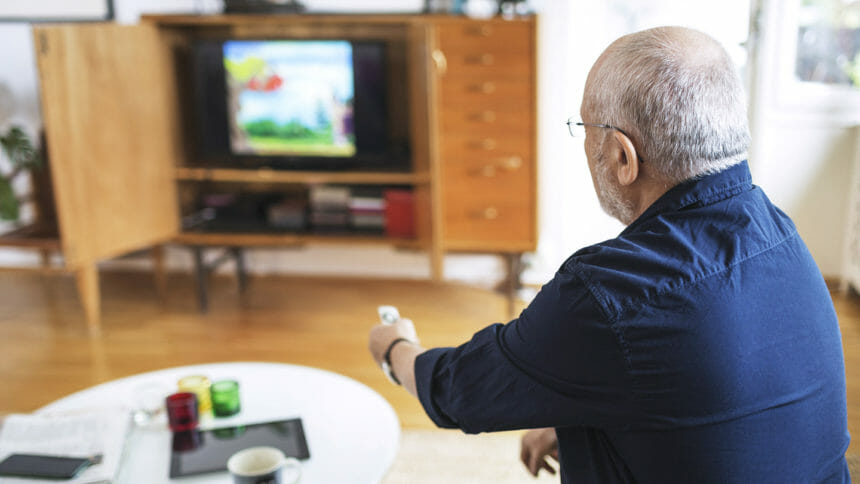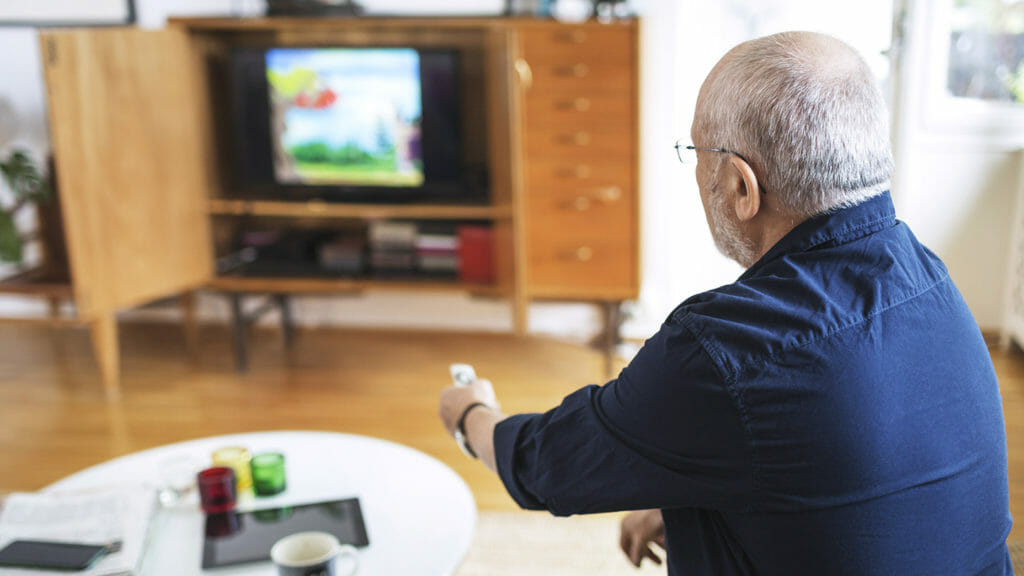

What a person does while sitting matters, according to a new study looking at the effects of physical and mental activity on dementia risk.
Older adults who sit for long periods of time participating in passive, sedentary behaviors — such as watching TV — may be at increased risk of developing dementia, according to a study published Monday in the journal Proceedings of the National Academy of Sciences.
But researchers from the University of Southern California and the University of Arizona said that they also found that risk can be lowered with greater intellectual stimulation through activities such as reading.
“What we do while we’re setting matters,” study author David Raichlen, PhD, USC professor of biological sciences and anthropology, said in a statement. “This knowledge is critical when it comes to designing targeted public health interventions aimed at reducing the risk of neurodegenerative disease from sedentary activities through positive behavior change.”
For the study, more than 145,000 older adults self-reported information on their levels of sedentary behavior during the 2006-2010 baseline examination period. The researchers also used data from a United Kingdom biomedical database of more than 500,000 participants to investigate possible links between sedentary leisure activity and dementia in older adults.
After an average 12 years of follow-up, the investigators used hospital records to determine dementia diagnoses, finding 3,507 cases.
“We know from past studies that watching TV involves low levels of muscle activity and energy use compared with using a computer or reading,” Raichlen said. “And while research has shown that uninterrupted sitting for long periods is linked with reduced blood flow in the brain, the relatively greater intellectual stimulation that occurs during computer use may counteract the negative effects of sitting.”
Raichlen said it isn’t just the time spent sitting, but the type of sedentary activity performed during leisure time that affects dementia risk.
Study co-author Gene Alexander, PhD, a UA psychology professor, said in a statement that although physical activity is good for brain health, many think that being more physically active during the day counters the negative effects of time spent sitting.
“Our findings suggest that the brain impacts of sitting during our leisure activities are really separate from how physically active we are,” Alexander said, “and that being more mentally active, like when using computers, may be a key way to help counter the increased risk of dementia related to more passive sedentary behaviors, like watching TV.”
The study was supported by grants from the National Institutes of Health, the state of Arizona and Arizona Department of Health Services and the McKnight Brain Research Foundation.


